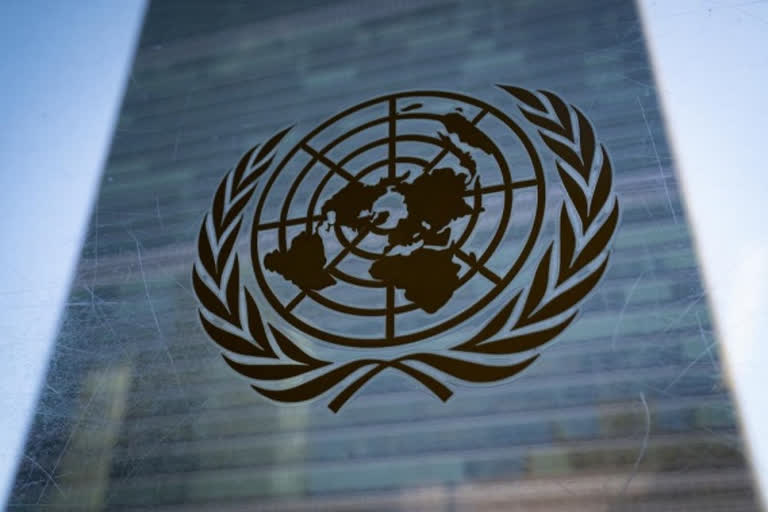United Nations:As 191 countries approach Friday's end to a four-week conference to review the landmark U.N. treaty aimed at curbing the spread of nuclear weapons, Russia's invasion of Ukraine and takeover of Europe's largest nuclear power plant and rivalries between the West and China were posing key obstacles to agreement on a final document.
Argentine Ambassador Gustavo Zlauvinen, president of the conference reviewing the 50-year-old Nuclear Nonproliferation Treaty, which is considered the cornerstone of nuclear disarmament, circulated a 35-page draft final document on Thursday. After listening to objections from countries at a closed-door session, diplomats said he was planning to revise the document for a final closed-door discussion Friday morning, ahead of an open meeting in the afternoon to end the conference.
Any document must be approved by all parties to the treaty and it's uncertain whether an agreement will be reached before the conference ends. There is a possibility that only a brief statement reaffirming support for the NPT might get unanimous support. The NPT review conference is supposed to be held every five years but was delayed because of the COVID-19 pandemic.
The last one in 2015 ended without an agreement because of serious differences over establishing a Middle East zone free of weapons of mass destruction. Those differences haven't gone away but are being discussed, and the draft final document obtained by The Associated Press would reaffirm the importance of establishing a nuclear-free Mideast zone. So this is not viewed as a major stumbling block this year.
The issue that has changed the dynamics of the conference is Russia's Feb. 24 invasion of Ukraine and Russian President Vladimir Putin's warning that Russia is a potent nuclear power and any attempt to interfere would lead to consequences you have never seen, and his decision soon after to put Russia's nuclear forces on high alert.
Putin has since rolled back, saying that a nuclear war cannot be won and must never be fought, a message reiterated by a senior Russian official on the opening day of the NPT conference on Aug. 2. In addition, Russia's occupation of Europe's biggest nuclear plant at Zaporizhzhia in southeastern Ukraine, where Moscow and Kyiv have accused each other of shelling, has raised fears of a nuclear disaster.
Earlier this week, U.S. Ambassador to the U.N. Linda Thomas-Greenfield told the Security Council that the Biden administration is seeking a consensus final document that strengthens the treaty and acknowledges the manner in which Russia's war and irresponsible actions in Ukraine seriously undermine the NPT's main purpose.
Russia's U.N. Ambassador Vassily Nebenzia accused the United States and its allies at that council meeting of politicizing the work on the final document, putting their geopolitical interests in punishing Russia above their collective needs in strengthening global security. Against the backdrop of the actual sabotage by the collective West of the global security architecture, Russia continues to do everything possible to keep at least its key, vital elements afloat, Nebenzia said.
The 35-page draft document has at least three specific references to the Zaporizhzhia plant, including expressing grave concern over its security, the military activities conducted at or near it, and the loss of control over the facility by Ukrainian authorities. The draft expresses support for efforts by the U.N. nuclear watchdog, the International Atomic Energy Agency, to visit the plant and ensure the non-diversion of nuclear material.
Under the NPT's provisions, the five original nuclear powers the United States, China, Russia (then the Soviet Union), Britain and France agreed to negotiate toward eliminating their arsenals someday and nations without nuclear weapons promised not to acquire nuclear weapons in exchange for a guarantee to be able to develop nuclear energy for peaceful purposes.
India and Pakistan, which didn't join the NPT, went on to get the bomb. So did North Korea, which ratified the pact but later announced it was withdrawing. Non-signatory Israel, which is believed to have a nuclear arsenal but neither confirms nor denies it, has been an obstacle in discussions of a Mideast zone free of weapons of mass destruction.
Nonetheless, the treaty has been credited with limiting the number of nuclear newcomers (U.S. President John F. Kennedy once foresaw as many as 20 nuclear-armed nations) as a framework for international cooperation on disarmament. The draft final document would express deep concern that the threat of nuclear weapons use today is higher than at any time since the heights of the Cold War and at the deteriorated international security environment.
Diplomats and nuclear experts monitoring the closed-door negotiations have cited other differences that could block agreement on a final document. These include China's demands that it mention the U.S.-UK-Australia deal to provide Australia with a nuclear-powered submarine and nuclear-sharing in Europe, and demands by some countries strongly opposed to nuclear weapons for immediate nuclear disarmament to be included, which some Western countries call unrealistic. (AP)
